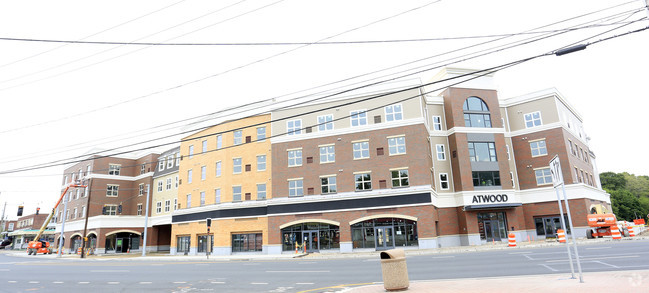Transfer LLC Moved Off-Campus Due to Space Issue
For the first time, a living-learning community at the University of New Haven is being housed off campus. This year, the Transfer LLC, comprised entirely of students who previously attended another university, will be located in the newly-opened Atwood. The Atwood offers off-campus housing off of Boston Post Road and Campbell Avenue in the Allingtown section of West Haven.
The LLC was originally scheduled to be in Gerber Hall, but the largest first year class forced the Office of Residential Life find alternative places to house students in order to accommodate all of them.
“We needed to be creative about finding room on main campus for our first year students to help them transition to the University,” said Associate Dean of Residential Life and Housing Nicole McGrath.
McGrath also said that they like to assign first year students together and not mixed in with upperclassmen, although there are three freshman living in Celentano Hall, and that this drove the decision to move the LLC. Transfer students are not assigned housing until the freshman class is assigned housing, so no students had to be displaced to move the LLC. This made it a viable option to keep first year students together by clearing a large portion of housing space in Gerber Hall where the Transfer LLC was supposed to reside. Transfer students are typically assigned throughout campus, according to McGrath, so the decision to move them to Atwood was not particularly unusual.
All LLCs have a resident assistant to plan events and the Transfer LLC is no exception. While it was not the original plan to place an RA in Atwood, it became necessary to accommodate the LLC.
While the LLC RA maintains the power to document and enforce policy violations, he is not on call every night, he does not sit in the lobby or check guests in, and he does not do “rounds.” The Atwood Community Coordinator, a position originally designed for Atwood, also has the power to enforce rules.
“It’s a different population and different experience,” said McGrath.
The RA for the LLC has his own funds to run programs for the LLC. While the community coordinator also has funds to plan events with the students living in the apartments, the Transfer LLC is the main focus when it comes to programming.
McGrath explained the decision to move the LLC to the Atwood, saying that there is still a common area to do programming events. She also mentioned that they coordinated with the LLC’s faculty adviser to assure the move was successful.
According to Associate Director for Housing Operations, Daniel Percopo, some transfer students were excited to learn about their living assignment to the Atwood because they were looking forward to a more independent living setting.
“The total cost is similar and competitive to Celentano Hall,” said Percopo when asked if the cost of the Atwood was an issue to any transfer students. “It is very competitive to living in Celentano.”
Atwood also includes some amenities that main campus does not, which according to McGrath helps even out the cost compared to on-campus housing. A meal plan is not required in Atwood and vacation housing is available to students renting there, as opposed to students on the main campus who pay per week to remain on campus over breaks.
McGrath and Percopo also addressed the rumors that first-year students were all over campus and in every residence hall.
“I think people just heard it was a big first year class and they just assumed we commandeered spaces,” said McGrath on the rumor. “We had a large freshman class but they all went into traditionally first year halls.”
Percopo further addressed the rumor that students who were placed in Atwood are paying a discounted price compared to those students who chose to reside in the building.
“The only discounted pricing was when we ran the promotional for the grad students placed at the Atwood in May. It had to do with when they signed their lease with Residential Life,” he said. “There has been no other undercutting of fees or costs associated with the students’ housing assignment.”

Karina Krul is a senior marine biology major with a triple minor in psychology, political science and marine affairs. This is her fourth year with The...














